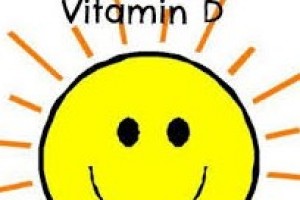Q: What is vitamin D?
Ans: Vitamin D is a fat-soluble vitamin. It actually acts as a steroid hormone rather than just a vitamin in the body and is involved in everything from weight management to bone health.
Forms of vitamin D
D3 and D2
D3: It is produced in response to our skin exposure to sunlight and through foods derived from animals.
D2: D2 comes from non-animal sources such as fungi and plants. Overweight or obese people have the problem of release of vitamin D into the circulatory system.
Because vitamin D is found almost exclusively in animal products, so vegetarians and vegans are at particularly high risk of not getting enough of vitamin D.Thats the reason some plant-based products such as soya milk, orange juice, cereals, oatmeals are fortified with vitamin D.
Sun exposure is also one of the biggest sources of vitamin D.It is recommended to take at least 5-30 minutes of sun exposure two times per week to help meet your vitamin D requirements. Although this can vary based on a number of factors, including age, skin color and body weight etc. However, if you are not able to spend some time outside to soak up the sun or you live in a place where your sun exposure is limited there are plenty of options or other ways to make sure you are meeting your needs.
When most people think of vitamin D they think of bone health, but it is much more than that. It supports immune and neuromuscular functions which is actually even more important. It also enhances absorption of calcium, iron, magnesium etc.
Signs and symptoms of vitamin D deficiency:-
If you become sick often, especially with colds or the flu, low vitamin D levels may be a contributory factor.
Fatigue and tiredness.
Lower back pain.
Depression.
Low bone density.
Hair loss.
Muscle pain.
So what are the foods that contain vitamin D? Here's what you need to know:
Vitamin D rich foods: Getting enough from your diet alone is difficult, but not impossible.
Tuna and Salmon fish(salmon is a popular fatty fish). Luckily for people who do not like fish, seafood is not the only source of vitamin D, whole eggs are another good source, as well as wonderfully nutritious food.
cheese
Chicken
Mushrooms are the only plant source of vitamin D.Do you know placing any mushroom under the sun for 20 minutes will boost its vitamin D level.
Butter: It contains a small, yet a significant amount of vitamin D.Consume butter in moderation for a healthy and balanced diet.
Fortified food items like milk, soya, yogurt, oats, orange juice etc.
Simple methods to increase your sun exposure:
Take a walk: Try to take a walk early morning, during your lunch or after work.
Embrace the sun during winter.
Common risk factors for vitamin D deficiency:
Being overweight or obese.
Not eating fish or dairy products.
Staying indoors.
Elderly reasons: The kidney's ability to make vitamin D in the body decreases with age.
Always using sunscreen when going out.
Darker skin leads to less vitamin D production in the skin.
Benefits of vitamin D foods:
It boosts brain health.
May help prevent cancer formation.
strengthens bones.
Improves immune function.
It boosts weight loss.
Dr.Suman Setia
For more updates Like us on Facebook, just click on this link: https://www.facebook.com/foodclinic.in/
Also click to see
1 ) Diet in dengue fever 2) diet in Malaria
3) Govt advisory to avoid Dengue 4) Home remedies for Viral fever
5) Perfect Haldi Milk 6) Home remedies for cold & cough
7) Tips for a safe and healthy pregnancy 8 ) Quick Nimbu Pani in 10 seconds

